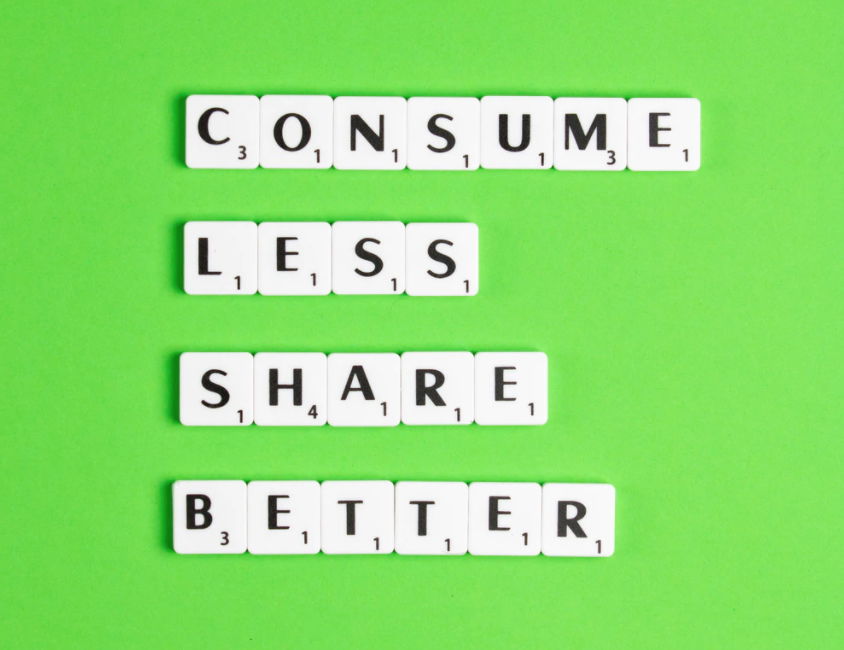Go green or go home! No, go green at your home. There, that’s much better. Practicing sustainable habits around your apartment is a great way to save money, reduce waste and help the planet. What’s not to like about that? To help you on your way, here are four eco-friendly tips for your apartment.
Now, in the words of the great Van Morrison:
“When green is all there is to be
It could make you wonder why
But why wonder, why wonder?
I am green and it’ll do fine, it’s beautiful
And I think it’s what I want to be”– Van Morrison “Bein’ Green”
Hey, why not sing along to Van’s tune while you practice these four eco-friendly apartment tips?
Get smart with power strips
As Eurodance group Snap! would say, “I’ve got the power.” Utilizing smart power strips is a great way to reduce energy and save money. Wait, money is green, right? How fitting to save some green while going green!
Think about how many electronics you have plugged in at this moment—your TV, laptop, floor lamp, cable box, gaming systems, etc. Now, how many of those things are you currently using? Odds are, not all of them. Further, what’s the point of feeding these items energy while sleeping? That’s right; many electronics still use electricity even when you turn them off. This unnecessary use of power is known as the standby mode. While it’s not significant energy use, electronics on standby mode add to your energy bill and carbon footprint over time.
While you could unplug all of your electronics each night before bed, it might be smarter to invest in power strips. That way, turning off multiple items is as easy as flipping a switch.
For even more energy-saving, try out a smart power strip. What’s the difference? Smart power strips use timers or energy monitors to shut off automatically.
According to How Stuff Works, “Statistics vary, but experts say standby power consumption in an average home ranges from 5 percent to 10 percent of your household energy consumption. It can also account for about 1 percent of worldwide carbon dioxide emissions [source: Lawrence Berkley Nation Laboratory].”
Cooking with a side of sustainability

While what you cook is essential (going meatless can help save water and reduce methane), how you cook your food can save energy and reduce your carbon use. From refrigerators to stoves, most kitchens drain a lot of energy. Moreover, the older an appliance, the likelier it is to use power insufficiently. A solution would be to replace kitchen accessories with Energy Star items, though not every apartment renter has that option. Thankfully, these simple, eco-friendly cooking hacks make up for any energy-hogging devices. There will be no energy drain in your cooking game.
- In the winter, leave the oven door open when you shut it off after use. Doing so releases hot air into your kitchen, relieving some of the burdens from your heater.
- In the summer, only use your oven when the sunsets and temperatures are at the daily low.
- From heating water to cooking food, use a microwave when possible. Though it’s not as fun as cooking on the stove, modern microwaves use much less energy.
- If possible, opt for plant-based cleaners for dishwashing, handwashing, and beyond. When shopping for cleaners, look for options that are low in volatile organic compounds, biodegradable, and derived from plants.
- Many people have cabinets and drawers filled with “sounded good at the time” utensils. We’re looking at you, Stainless steel strawberry huller. Opt for owning less and sharing more. Either borrow from a friend or family member or consider starting a “kitchen library” within your apartment complex.
- Keep appliances such as ovens clean to increase efficiency.
Making a Case for Reducing Waste
Odds are, there’s no other room in your apartment that generates more waste than your kitchen. From food scraps to packaging, preparing meals sends an awful lot of stuff to the landfill. Why does that matter? Despite the phrase “throw it away,” there’s no such place as away. Our waste has to end up somewhere. Also, it might not seem like your trash output is significant, but collectively the US puts up some mind-boggling municipal solid waste (MSW). According to the EPA, “In 2018, about 146.2 million tons of MSW were landfilled. Food was the largest component at about 24 percent.”
Here are some easy tips to reduce waste in your apartment kitchen:
- Store food properly so that it lasts longer. Here’s a good list of how to properly store fruits and veggies.
- If possible, freeze extra ingredients and prepared food instead of tossing it in the garbage.
- Buy your favorite products in bulk to reduce packaging waste.
- Opt for reusable storage bins instead of covering leftovers with aluminum and plastic wrap.
- When heading to the store, don’t forget your reusable grocery and produce bags.
- While it’s convenient to reach for the paper towels to clean spills and messes in the kitchen, try using a washable cloth instead. If you’re partial to single-use, then go for recycled or bamboo paper towels.
- Invest in a pressure cooker. According to TreeHugger, “70 percent: The reduction in cooking time and energy use from using a pressure cooker to cook your food.”
As for the rest of your apartment, a simple way to reduce waste is to get smart and creative with reusing and repurposing. Check out Apartment Therapy’s list of “Smart, Money-Saving Creative Re-Use Ideas.”
One Person’s Trash…(Donate, Gift, Sell)

With all the fuss about downsizing and reducing the items one owns, the sustainability benefit gets lost in the noise. For instance, Planet Aide notes that “the average American throws out about 82 pounds of textile waste per year.” In other words, don’t toss usable goods into the trash. There are many options for extending household items’ use, from old clothes to appliances.
Fix: When something breaks, many find it more convenient to purchase new. But who is to say you, or someone with the right skills, can’t fix it? Sadly, we live in a culture with a “throwaway mindset,” and few people take the time to learn how to fix things. Let’s change that!
Sell: From eBay to Facebook Marketplace, there are myriad options for selling used goods online. What may seem old or out-of-date to you might look vintage and unique to someone else. Further, what’s wrong with making a little extra cash?
Donate: If you have clothes that are still in good shape, consider donating to a clothing bank. Most Goodwills will also accept used art, books, curiosities, and exercise equipment.
Recycle: We are talking beyond the blue bin in your apartment. When it comes to used electronics and clothes, it’s never been easier to recycle old goods. For instance, Best Buy accepts and recycles many of the things they sell, from CDs to DVD players. As for clothes, you can take used textile items, no matter how torn or stained, to any H&M, and they will recycle them for you. To encourage your kids to recyle, check out this super fun Kids’ Recycling Guide from SaveOnEnergy.com.
Sorry, Mr. Morrison, but “bein’ green” has never been easier! We hope these tips inspire you to entertain an eco-friendly apartment.
Learn more apartment living tips on our McKinley blog.















